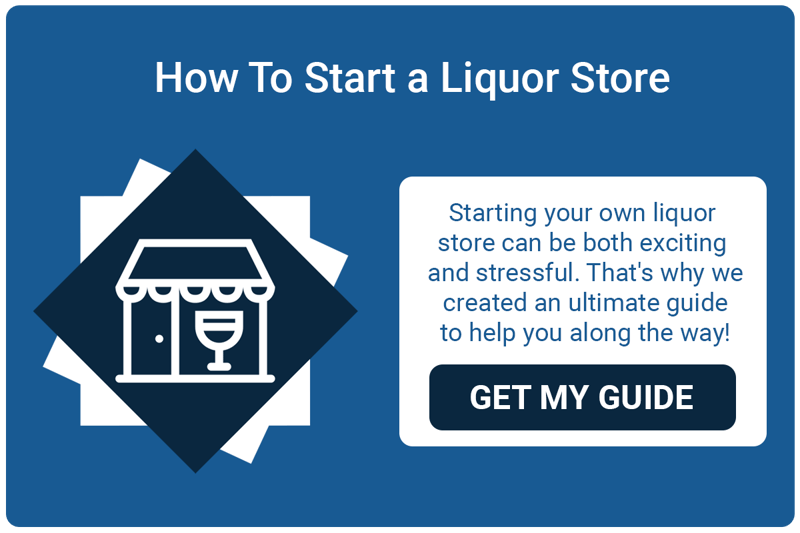Hoping to make it big in the Lone Star State by opening a liquor store?
The first (and most important) step is understanding how to operate legally — starting with the right licensure.
So, how much is a liquor license in Texas? We’re here to tell you.
This quick guide will cover everything you need to know about budgeting, applying for, and protecting your Texas liquor license.
How Much Is a Liquor License in Texas? The Average
Let’s get right into the numbers. Most liquor stores in Texas qualify for a package store permit, which allows them to sell beer, wine, and spirits for off-premise consumption. As of May 2025, this popular permit type costs $1,800.
The Texas Alcoholic Beverage Commission (TABC) requires you to renew your license and pay this fee every other year.
Pro tip: Along with the right license, you need a specialized point of sale (POS) system to help you navigate Texas’ regulations, manage liquor inventory, verify customer ages, and more.

3 Factors That Affect Your Texas Liquor Licensure Costs
While a package store permit is the most common liquor license option in Texas, it’s far from the only one. The TABC offers a wide range of license types for alcohol manufacturers, distributors, and retailers.
With so much on your to-do list before opening your liquor store, researching the options and determining which type of license you need can be overwhelming.
That’s why we’ve put together three key questions to help you identify your liquor licensure needs and how much your Texas liquor license will cost.
1. What Type of Alcohol Will You Sell?
The type of license you need is determined by what’s on your shelves.
The TABC offers different types of liquor licenses for businesses that sell beer only, wine only, or a combination of beer, wine, and spirits.
Let’s look at how your product mix affects the cost of your liquor license:
- Wine-only package store permit: This permit costs $1,600 and allows you to sell wine and host tasting events.
- Retail dealer’s off-premise license: This permit allows you to sell malt beverages, making it a popular choice for specialty beer shops. It costs $1,100.
- Package store permit: This permit allows you to sell all types of alcohol, including beer, wine, and spirits. It costs $1,800.
If you plan to focus on fine wines or craft beers, a specialty TABC license might fit your needs better than a generic package store permit.
2. Where Will Customers Consume Your Products?
Your TABC licensure needs also depend on your business model — specifically, where customers will consume your alcoholic beverages after purchase.
This information is critical because the TABC offers different types of permits for retail stores versus bars and restaurants. Package store permits and wine or malt beverage off-premise permits require that customers consume their purchases somewhere other than your liquor store.
If you’re planning to serve alcoholic beverages in your store, you’ll need a different — and more expensive — type of license.
For example, a wine and malt beverage retailer’s permit, which allows you to sell and serve wine and beer, costs $1,900. If you want to serve liquor, you’ll need a mixed beverage permit, which costs $5,300.
3. Will You Offer Delivery?
Embracing the power of e-commerce can transform your liquor store, helping you expand your reach, connect with new customers, and make more sales.
However, seizing this opportunity can lead to higher liquor licensing fees in Texas. You’ll need a consumer delivery permit to offer delivery in your online liquor store.
This specialty license comes with a fee of $10,000.
To make the cost worth it, you’ll have to optimize your pricing and marketing strategies to grow your e-commerce operations and turn a profit.

Bonus Tips for Liquor Store Success in Texas
How much is a liquor license in Texas? The most accurate answer is that it depends, but most liquor stores offering a standard selection of beer, wine, and spirits for off-premise consumption can expect to pay a licensing fee of $1,800 every other year.
But budgeting for your liquor license is only the first step toward liquor store success in the Lone Star State. Here are a few of our top tips to set your business up for success:
- Know your competitors and customers: Texas can be a competitive state for liquor stores, so setting yourself apart is crucial. Conduct thorough market research to understand what your competitors are offering, what your customers want, and how your liquor store can fill a gap.
- Research Texas’ liquor store laws: The TABC has a strict set of guidelines governing how to run your liquor store, including age verification, sales and inventory reporting, and more. Make a plan to comply with these regulations and protect your new liquor license.
- Invest in a powerful POS system: The right liquor POS system can help you comply with TABC regulations and tackle the challenges of running a liquor store, from managing inventory to calculating profit margins.
Looking for a partner to help you launch a lucrative liquor store? You’re in the right place!
Bottle POS is an all-in-one POS solution designed with your needs in mind. Our software includes all the features you need to facilitate speedy transactions, maintain the perfect balance of inventory, retain customers, and achieve profitability.
Plus, our team of liquor industry experts is available 24/7 to answer your questions and help you make the most of your new POS system.
See Bottle POS in action by scheduling a live demo today!
















.png?width=264&height=280&name=transparent%20(1).png)